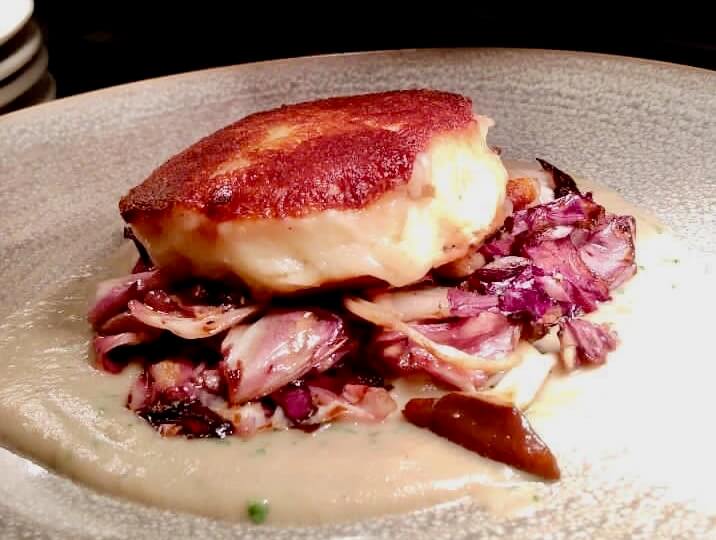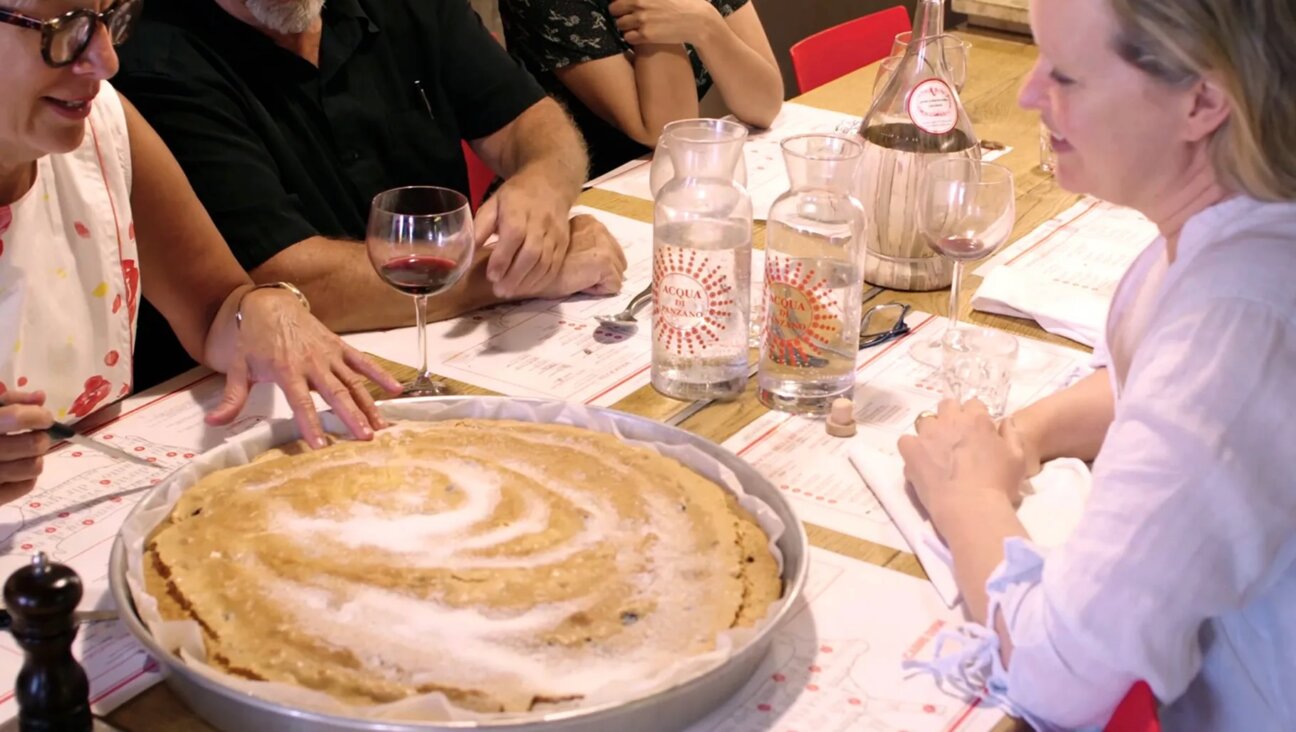VIDEO: How to Make the Best Boozy Brisket

Image by Martyna Sarosta
Brisket video from the Jewish Daily Forward on Vimeo.
Holiday food doesn’t have to be a huge production. The most beloved dishes are often the simplest, and if they can be made ahead, then all the better.
Brisket is one of these. Long, slow cooking in flavorful liquid transforms a tough lump of protein into the most tender, comforting and tasty dish. My grandmother used to braise hers in lots of tomato and a bottle of beer, and when we were little she called it “stringy meat.”
My mother, her daughter, was a culinary sophisticate who, like so many women of her generation, taught herself to cook by making her way through Julia Child’s “Mastering the Art of French Cooking.” Instead of humble brisket, she would braise a rump roast in red wine. Called “boef à la mode,” it was hardly more complicated than its homey predecessor, but came across as a most elegant alternative.
My own brisket draws a little from each model, and couldn’t be simpler. The braising liquid is a lot of sturdy red wine mixed with a little tomato. Inspired by the Italian tradition of sprinkling chopped fresh herbs, zest and garlic — called a gremolata — over osso buco, I finish the dish with the fresh, bright mixture. It wakes up the flavor of the stewed meat and contributes irresistible aroma and texture.
For Passover, the addition of fresh horseradish to this garnish feels thematically appropriate, and it carries a key flavor of the Seder through the delicious main course.
Boozy Brisket With Gremolata
2 tablespoons vegetable oil
1 teaspoon salt (or more to taste)
½ teaspoon pepper (or more to taste)
1 4- to 5-pound brisket
1 medium onion, peeled and quartered
2 carrots, peeled and roughly chopped
4 cloves of garlic, peeled and smashed
3 cups dry red wine
1 cup chopped or diced tomato
4 sprigs fresh thyme
2 bay leaves
For the gremolata garnish:
1-2 cloves garlic, peeled and finely minced
1 cup parsley, finely chopped
Zest of 1 orange
1 tablespoon freshly grated horseradish
1) Preheat the oven to 325˚ F.
2) Heat the oil in a large heavy pot over high heat until hot. Pat the meat dry, sprinkle with salt and pepper then place in pot and brown on both sides (about 10 minutes per side. Don’t skrimp — the browning lends great flavor to the finished dish.)
3) While meat is browning, peel onion, carrots and garlic. Remove meat to a plate. Lower heat to medium-low and add onion, carrots and garlic to the pot, stirring, about 2 minutes. Add the wine and scrape any brown bits off the bottom of the pan to deglaze. Add the tomato, thyme and bay leaves and stir to combine. Carefully slide the meat back into the pot with any accumulated juices. The liquid should almost cover the meat.
4) Cover the pot and place it in the oven, cooking for 3½ to 4½ hours, until meat is very tender but not falling apart.
5) This step is optional but highly recommended: Refrigerate overnight. The next day, before serving, remove the solid fat that’s accumulated over the brisket, then remove the meat to a cutting board and cut into ½-inch slices, across the grain. Return meat to the pot and heat in a 350˚ oven for about an hour.
6) Meanwhile, make the gremolata by combining the garlic, parsley, orange zest and grated horseradish.
7) Place sliced meat and sauce on a deep platter or individual plates. Sprinkle with gremolata and serve.
Liza Schoenfein is food editor of the Forward. Contact her at [email protected] and follow her on Twitter @LifeDeathDinner. Her personal blog is Life, Death & Dinner.
A message from our Publisher & CEO Rachel Fishman Feddersen

I hope you appreciated this article. Before you go, I’d like to ask you to please support the Forward’s award-winning, nonprofit journalism so that we can be prepared for whatever news 2025 brings.
At a time when other newsrooms are closing or cutting back, the Forward has removed its paywall and invested additional resources to report on the ground from Israel and around the U.S. on the impact of the war, rising antisemitism and polarized discourse.
Readers like you make it all possible. Support our work by becoming a Forward Member and connect with our journalism and your community.
— Rachel Fishman Feddersen, Publisher and CEO






























